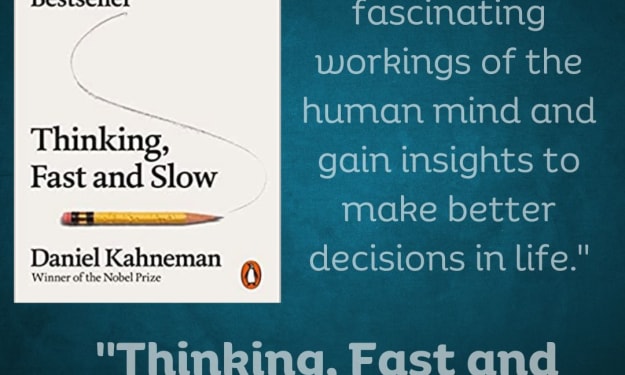
“Thinking, Fast and Slow” is a groundbreaking book written by renowned psychologist and Nobel laureate Daniel Kahneman.
Published in 2011, this influential work offers profound insights into the workings of the human mind, revealing the intricate interplay between our two cognitive systems: the intuitive and impulsive “fast” thinking, and the deliberate and analytical “slow” thinking. Kahneman’s extensive research and personal experiences shed light on the biases, errors, and systematic patterns that shape our decision-making processes.
In this collection of Thinking Fast and Slow quotes, we delve into the thought-provoking concepts presented in the book, exploring the nuances of human cognition and the fascinating ways in which our minds shape our perceptions, judgments, and choices.
These quotes serve as a captivating glimpse into the rich tapestry of human thought, inviting us to examine our own thinking processes and prompting us to question the assumptions and biases that influence our daily lives.
Quotes and Meaning
Quotes 1: The expectation of an unpleasant experience is more aversive than the experience itself.
Meaning: Anticipating a negative event or outcome can create greater emotional distress than the actual experience.
Quotes 2: Intuition is nothing more and nothing less than recognition.”
Meaning: Intuition is often a result of recognizing patterns or familiar elements in a situation based on past experiences.
Quotes 3: “Cognitive ease is a pleasant state, and it induces a general sense of liking and familiarity.”
Meaning: When our thinking processes require less effort and feel effortless, we tend to have positive associations and perceptions.
Quotes 4: “A substitution occurs when an easy question is answered instead of a difficult one.”
Meaning: When faced with a challenging question or problem, our mind may automatically substitute it with an easier question that we can answer.
Quotes 5: “The excessive certainty of hindsight leads hindsight thinkers to overestimate the predictability of the past.”
Meaning: When looking back at past events, we tend to believe that the outcomes were more predictable than they actually were.
Quotes 6: “What you see is all there is.”
Meaning: Our thinking is heavily influenced by the information that is readily available to us, even if it is incomplete or biased.
Quotes 7: “Happiness is not only measured by the sum of momentary pleasures but also by a person’s interpretation of their overall life experience.”
Meaning: Happiness is not solely determined by momentary joys but also by how individuals perceive and interpret their life as a whole.
Quotes 8: “The mind is good at discovering stories and constructing them but not as good at evaluating them.”
Meaning: Our mind is skilled at creating narratives and explanations, but we are often less adept at critically evaluating and assessing their accuracy.
Quotes 9: “What you see is all you get.”
Meaning: Our understanding and perception of reality are limited to the information that is available to us, and we may overlook important factors that are not immediately apparent.
Quotes 10: “People who face greater ambiguity are less willing to take risks.”
Meaning: When faced with uncertain or ambiguous situations, people tend to be more risk-averse and prefer to stick to familiar and predictable options.
Quote 11: “Emotions often drive decision-making more than facts or logical reasoning.”
Meaning: Emotions play a significant role in our decision-making process, sometimes overriding logical reasoning and factual information.
Quote 12 “Losses loom larger than gains.”
Meaning: The negative impact of losses tends to have a stronger psychological effect on us than the positive impact of equivalent gains.
Quote 13 “We tend to believe that we know more than we do.”
Meaning: Due to cognitive biases and overconfidence, we often overestimate our knowledge and understanding of a subject or situation.
Quote 14 “The framing of a problem heavily influences the choices we make.”
Meaning: The way a problem is presented or framed can significantly impact our decision-making process and the choices we ultimately make.
Quote 15 “Our thinking is influenced by our mood and the emotions we experience.”
Meaning: Our current mood and emotions can bias our thinking processes and influence the judgments and decisions we make.
Quote 16 “We often make decisions based on the ease with which relevant examples come to mind.”
Meaning: The availability of easily accessible examples or instances can heavily influence our decision-making, even if they are not representative or reliable.
Quote 17: “We are prone to substitute an easier question for a difficult one.”
Meaning: When faced with a complex or challenging question, we often unconsciously replace it with a simpler question that we can answer more easily.
Quote 18: “People are more influenced by the story they can tell themselves than by the actual experience.”
Meaning: Our interpretation and narrative of an experience hold more weight in shaping our beliefs and attitudes than the actual details of the experience itself.
Quote 19″People often make decisions based on how a problem is presented, rather than the actual probabilities or outcomes involved.”
Meaning: The way information is presented can significantly influence our decision-making, even if the underlying probabilities or outcomes remain the same.
Quote 20 “The illusion that we understand the past leads us to exaggerate our ability to predict the future.”
Meaning: Our tendency to construct coherent narratives of the past can lead us to overestimate our predictive abilities for future events, despite the inherent uncertainty.
Conclusion
As we reach the end of our exploration of “Thinking Fast and Slow,” we are left with a profound appreciation for the complexities and idiosyncrasies of human thought.
Kahneman’s insights serve as a call to action, urging us to be more aware of the mental shortcuts and biases that can often lead us astray. By questioning our assumptions and embracing a more deliberate and reflective approach to decision-making, we can strive for greater accuracy and effectiveness in our choices.
Ultimately, the knowledge gained from this remarkable book empowers us to become better thinkers and decision-makers in all aspects of our lives.
By fostering an awareness of our cognitive processes and adopting a more nuanced and deliberate approach, we can navigate the complexities of the world with greater clarity and wisdom.
Let us embrace the lessons learned and embark on a journey of self-discovery and intellectual growth, inspired by the remarkable teachings of Daniel Kahneman.
About the Creator
Read Dude
Hello Bookish!
Book Blogger | Reviewer
Join me as we turn the pages and unlock the wonders of literature.
Visit My website:https://readdude.com/






Comments
There are no comments for this story
Be the first to respond and start the conversation.